Committee Members
-
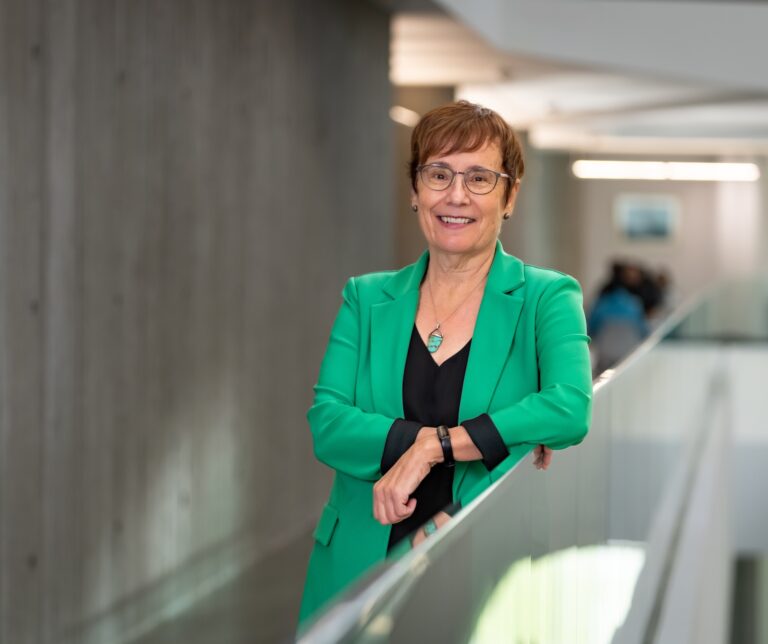
Dr. Annette Trimbee
Chair
Dr. Annette Trimbee’s professional journey has taken her from the water’s edge to the city's core, and she brings a wealth of experience and knowledge as a leader in both the post-secondary and the public sectors. Dr Trimbee currently serves as president and vice-chancellor of MacEwan University. Prior to joining MacEwan in 2020, Dr Trimbee served as president and vice-chancellor of the University of Winnipeg. After an early career as an aquatic biologist, Dr. Trimbee embarked on a distinguished, 25-year career with the Government of Alberta that allowed her to develop deep expertise in a broad range of systems—water, energy & environment, health, higher education & innovation, and finance. During this period, she held several senior leadership positions, including appointments as deputy minister with Advanced Education and Technology and with Treasury Board and Finance. Dr. Trimbee currently serves on the board of World Universities Service Canada, the board of Edmonton Global, the board of The Conversation Canada, and is a member of the International Red River Watershed Board that assists the International Joint Commission in matters related to the water management along the Canada-U.S. boundary. In 2022, Dr. Trimbee received the Indspire Award in Education, the highest honour bestowed by the Indigenous community, for her commitment to advancing Indigenous equality in society and in higher education. An accomplished academic, Dr. Trimbee holds a PhD (Ecology) from McMaster University, a M.Sc. from the University of Manitoba, and was a postdoctoral fellow at the University of Alberta.
-
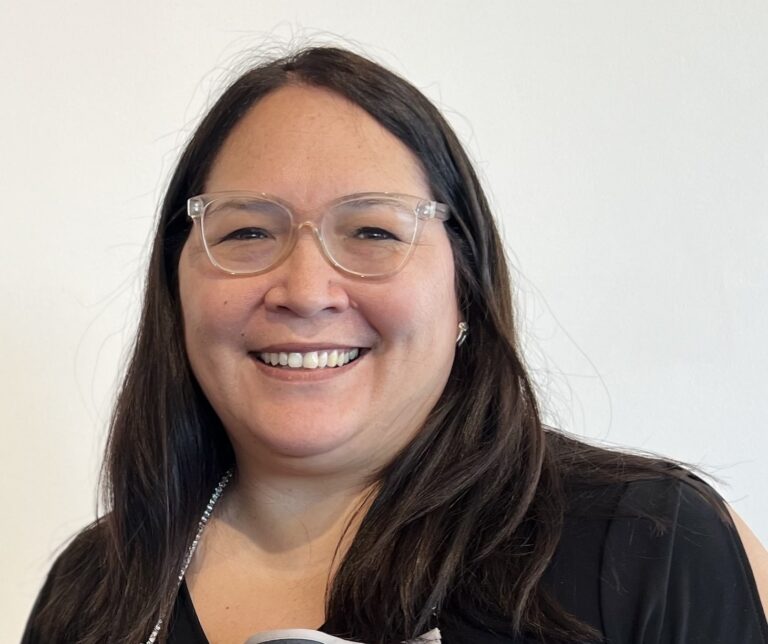
Aluki Kotierk
Originally from Igloolik, now residing in Iqaluit with her family, Nunavut Tunngavik President Aluki Kotierk leads by example. Throughout her career and to this day, Aluki is driven by her passion to empower and improve the lives of Inuit. After earning her master’s degree in Native and Canadian Studies at Trent University, Aluki worked for various Inuit organizations including Pauktuutit Inuit Women of Canada, Inuit Tapirisat of Canada (now known as Inuit Tapiriit Kanatami), and Nunavut Sivuniksavut. She has also held management and Deputy Minister roles within the Government of Nunavut, Office of the Languages Commissioner and Nunavut Tunngavik Incorporated. In her current role as President, Aluki is keen in how Inuit language and culture can be better incorporated into the way in which programs and services are designed and delivered in Nunavut. Aluki is currently one of two co-chairs representing Indigenous People’s Organizations on the Global Task Force for the International Decade of Indigenous Languages (IDIL) 2022-2032.
-

Cameron Adams
Cameron Adams is a proud member of the Berens River First Nation from Treaty 5 Territory in Manitoba, as well as an educator, and nēhinawēwin (Swampy Cree) student, and speaker. Following graduation from the University of Winnipeg with a Bachelor of Arts in Indigenous Languages, and a Bachelor of Education in History, he is now a graduate student at McGill University, set to graduate with an M.A. in Indigenous Language Revitalization this spring. Just seven years ago, Cameron could not speak his language, but through perseverance he taught himself Swampy Cree. He is candid about sharing how his own Indigenous identity journey led him to learn his language and gave him the drive to pursue higher education in Indigenous languages. Leading through example by using nēhinawēwin every day in his own life, Cameron is widely recognized and respected as a key member of the next generation of Indigenous language revitalizers. He is regularly sought-out as a speaker, panelist, and presenter in education, linguistics, and Indigenous language revitalization spaces. A few years ago, Cameron struggled to find resources to assist him on his language learning journey. This led to a passion for helping to document languages and create resources in nēhinawēwin. Recently, he spent three years working with Elders and language speakers to create an app which exposes learners to familiar Swampy Cree words and Phrases (n-dialect language app, nēhinawēwin.) He has also been working on creating a Swampy Cree dictionary, as well as studying promising practices in Indigenous language documentation. In May 2024, Cameron started working with the Office of the Commissioner of Indigenous Languages, on the Research, Innovation and Partnerships team as a Graduate Researcher. Outside of his studies and work, Cameron enjoys spending time with his family in Manitoba, playing outside in nature with his Golden Retriever, kōna, and travelling.
-
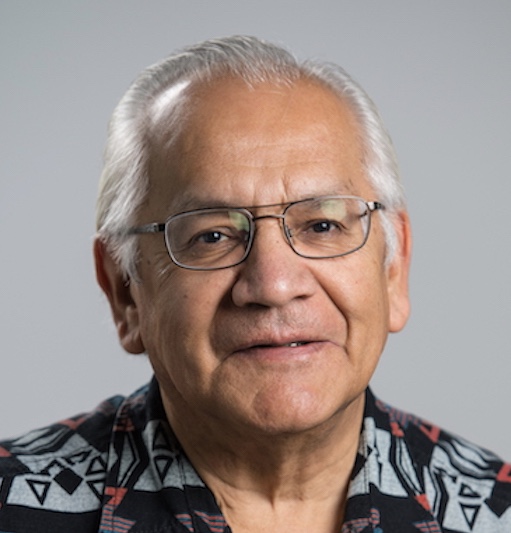
Dr. David Perley
Dr. David Perley recently retired as Director of the Mi’kmaq-Wolastoqey Centre at the University of New Brunswick. He is a co-founder of the Wolastoq Language and Culture Center located at Tobique First Nation in New Brunswick. Dr. Perley holds a B.A. (St. Thomas University) and M.A. (University of New Brunswick) in sociology. He specializes in Aboriginal education, Aboriginal studies, race relations, and analysis of social problems. Dr. Perley is a former Chief (1983-1989) and Councilor (2004-2010) of the Maliseet Nation at Tobique and has been employed as consultant for federal and provincial departments such as Education, Justice, Solicitor General, Child and Family Services as well as Indigenous and Northern Affairs Canada. Dr. Perley has been recognized for his work in Indigenous education, cultural revival and promoting appreciation of Wabanaki histories, contributions and treaty rights among Canadian citizens in general and New Brunswick citizens in particular. In June, 2022, he was appointed to the Order of Canada for his work in preserving Wolastoqey teachings, language and philosophies, and developing curriculum for both public school system and university-level programs.
-
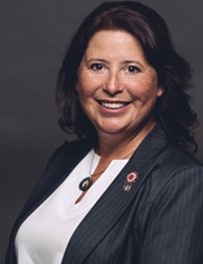
Denise Baxter
Denise Baxter has served as Vice Provost Indigenous Initiatives at Lakehead University since 2017. She also teaches in both the Department of Indigenous Learning and Department of Continuing Education. She is completing her PhD in Equity and Indigenous Education at York University. As an established education leader, Denise has worked in multiple contexts including public school boards, the Ministry of Education, Lakehead University, and First Nations private schools for the past 29 years. Within each of these contexts, she has built capacity and partnerships with multiple community stakeholders. Her work with the community has involved education conferences, workshop presentations, and traditional pedagogy. She currently serves on the following boards: YES Employment, Children’s Centre Thunder Bay, the Thunder Bay Police Services Governance Committee, Keewatin Patricia District School Board and a provincial EDI advisory committee. A Marten Falls First Nation member, she maintains that preserving and practicing cultural traditions and ceremony keeps her connected to the community, Indigenous cultures, traditions, and protocols. She works to establish networks, strengthen relationships with Indigenous communities and governments, and build capacity between Indigenous, public, and private partners which have supported multiple initiatives that advance educational outcomes for Indigenous students.
-
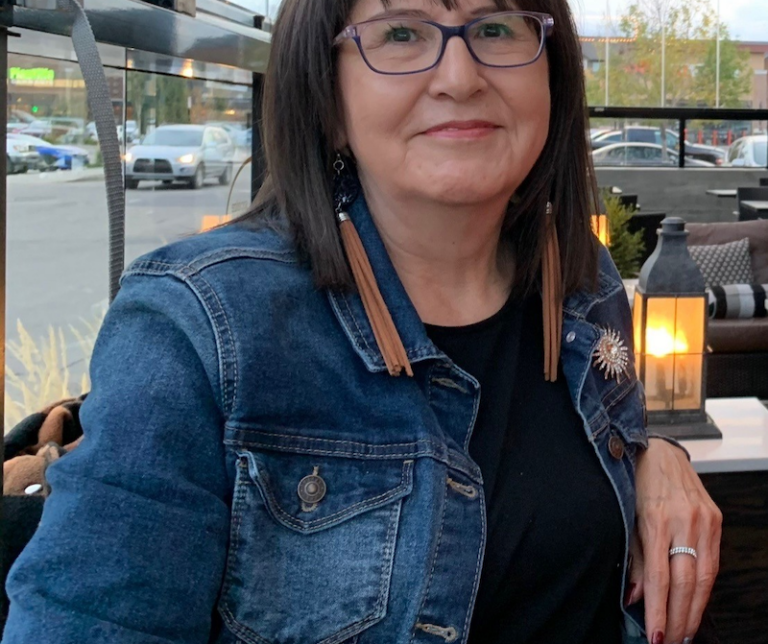
Dr. Evelyn Steinhauer
Dr. Evelyn Steinhauer is a passionate advocate for the advancement of Indigenous education. A member of the Saddle Lake Cree Nation, she earned her undergraduate degree from Athabasca University at Blue Quills First Nations College (now University nuhelot’ine thaiyots’inistameyimâkanak Blue Quills), followed by a Master of Education and a PhD in Educational Policy Studies from the University of Alberta, specializing in Indigenous Peoples Education. Dr. Steinhauer's commitment to education is reflected in her role as Associate Dean of Indigenous Teacher Education and as a Professor in the Faculty of Education at the University of Alberta, where she also serves as the Director of the Aboriginal Teacher Education Program (ATEP); a position she has held for the past 17+ years. In addition to these responsibilities, Dr. Steinhauer is actively involved in various working groups and committees both on and off campus, and has played a key role in the implementation and delivery of the mandatory Aboriginal Education course (EDU 211) for pre-service teachers in the Faculty of Education at the U of A. Outside of her academic work, Dr. Steinhauer co-hosts the Conversational Cree radio show with her husband, Jim Cardinal, on CFWE, Raven Radio, and CJWE. Beyond her professional roles, she is a proud grandmother of 13 grandchildren and two great-grandchildren.
-

Lois Philipp
A longtime resident of Fort Providence, NWT, Lois Philipp has dedicated her life to improving the well-being of youth in the Deh Cho First Nations region. As Principal of the Deh Gáh Elementary and Secondary School, she worked tirelessly to adapt the school’s programming and scheduling, resulting in higher attendance rates and a significant increase in the number of students attending post-secondary education institutions. Lois is the recipient of many awards, including: 2016 – Leadership Award in Indigenous Education from Indspire, 2013 – Canada's Outstanding Principals from the Learning Partnership, 2011 – Award of Excellence from NWT Recreation and Parks Association, 2017 NYA Builder Award from Northern Youth Abroad, and 2019 Arctic Inspiration Prize Laureate – Northern Compass. Driven by her passion to provide innovative approaches to education and community development, Lois is the founder of Northern Loco, a 100% Indigenous-owned company with a mission to create sustainable futures for northern communities.
-

Lorne Gladu
VISIONARY, METIS-CENTRIC, COMMUNITY ADVOCATE, AND INNOVATOR Lorne Gladu is a steadfast advocate for Métis education. Since joining the Métis Nation of Alberta in 1996, Lorne has consistently demonstrated his belief that education and training are the keys to meaningful change. His extensive career in the public service evolved over time from the RCMP, the City of Edmonton, Employment and Social Development Canada, and ultimately, the Metis Nation of Alberta where he continues to show his strong commitment to lifelong learning and advocacy for Métis citizens. Lorne's impact on Métis education is profound. As the founding CEO of the Rupertsland Institute (RLI), he has transformed the lives of thousands of Metis Citizens by supporting education, training, and research initiatives across Alberta. Under his leadership, the Métis Education Foundation (MEF) established a $40 million dollar endowment portfolio with 21 Alberta post-secondary institutions since 2008 and began disbursing funds through its Métis Scholar Awards in 2009. The MEF has also created internally managed endowment programs that are geared towards supporting students in the arts, music, sports, and academic endeavors outside the country. In 2019, Lorne and the team at RLI secured a 10-year $170 million funding agreement from the Government of Canada to support the Alberta Métis Education and Training Strategy, and at the same time began the delivery of an $88 million-dollar post-secondary education program for Alberta Metis citizens as well as Early Learning initiatives, and Metis Languages Revitalization. Working to bridge the education gap and enhancing Métis training to employment have been the forefront of his endeavors to this day. In 2011, Lorne worked with the University of Alberta to establish the Rupertsland Centre for Métis Research, and he led the RLI education team to establish the Rupertsland Centre for Teaching and Learning in 2017. Lorne’s advocacy and commitment to partnerships across the education spectrum and his endeavor to deliver Metis foundational knowledge to Alberta educators and system leaders demonstrates his commitment to Metis education. A graduate of MacEwan’s School of Business, Lorne’s vision and contributions in Metis education and training have been recognized by Indspire and three post-secondary institutions who have given awards to Lorne in the form of honorary degrees and awards as follows: Doctor of Laws, Athabasca University (2020); Indspire Award for Education (2021); Doctor of Laws, University of Alberta (2022); and Doctor of the University, MacEwan University (2023).
-
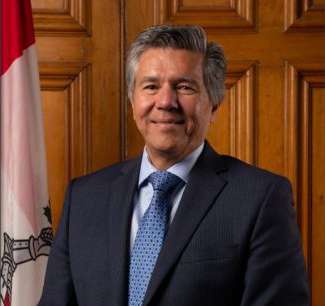
Dr. Mark S. Dockstator
Dr. Mark S. Dockstator is the Former President of the First Nations University of Canada. A member of the Oneida Nation of the Thames, he is currently an Associate Professor, Chanie Wenjack School for Indigenous Studies, at Trent University and Director of the Indigenous Knowledge Initiative at Queens University. He received his Doctorate of Laws Degree from Osgoode Hall Law School, York University where, in 1994, he was the first First Nations person to graduate with a doctorate in law. His doctoral dissertation, entitled “Toward an Understanding of Aboriginal Self Government”, is a blend of Indigenous and Western knowledge and was used as a foundation for the Royal Commission on Aboriginal Peoples final report. Dr. Dockstator has served as founding Chairman of the First Nations’ Statistical Institute, Senior Negotiator and Researcher for the Assembly of Manitoba Chiefs, President and CEO of Rama Economic Development Corporation, Special Advisor to the Royal Commission on Aboriginal People and Special Advisor to the Chief Commissioner of the Indian Land Claims Commission, to name a few. Dr. Dockstator is a Board Director at the Rideau Hall Foundation.
-
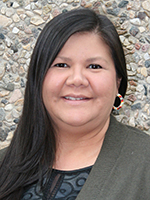
Yvette Arcand
Yvette Arcand is a First Nation woman from Beardy’s and Okemasis First Nation in central Saskatchewan, Canada (Treaty Six territory). Yvette’s parents and grandparents distilled that her voice be used to speak for others who do not have a voice, ensure First Nation student success, commitment to create safe spaces, and share First Nation teachings and worldview. Yvette is a proud alumnus of the Indian Teacher Education Program (ITEP) at the University of Saskatchewan. Yvette has worked for her First Nation as a classroom teacher and for the last 24 years she worked with ITEP as an Academic Program Advisor, Associate Director, Sessional lecturer and most recently Director. This is where she seen the importance of intertwining western and Indigenous knowledge in the classroom praxis.
-
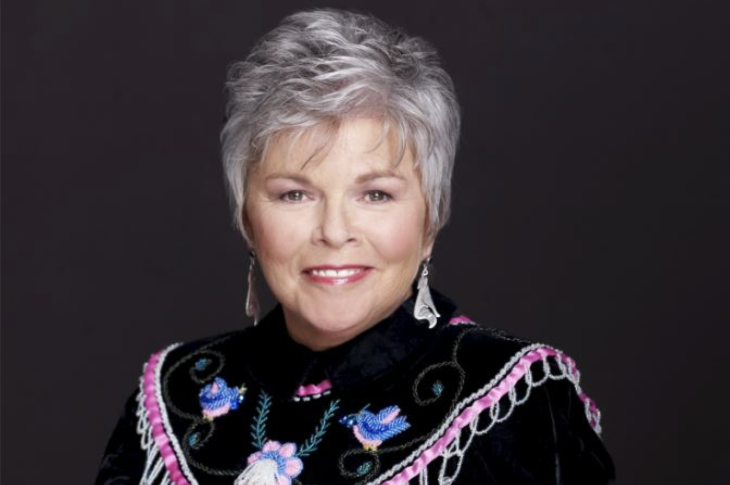
Roberta L. Jamieson
Past Co-Chair
Roberta L. Jamieson O.C., I.P.C, LLB, LLd (Hon), Director, RBC, Deloitte Canada and Chile, former President & CEO, Indspire. Roberta Jamieson is Mohawk who has achieved many firsts. They include being the first First Nation woman in Canada to earn a law degree; the first woman Ombudsman of Ontario; and the first woman elected Chief of the Six Nations of the Grand River Territory. Roberta has long been recognized as an accomplished expert in alternative dispute resolution and is an effective and visionary member of corporate boards, with an acknowledged expertise in Environmental, Social and Governance matters. She is currently on the board of directors of the Royal Bank of Canada, where she sits on the Risk and Governance committees, and Deloitte Canada and Chile, where she sits on the Governance and Succession committee, the Strategy, Transformation and Brand committee and the Quality committee. She is a former member of the Board of Directors of Ontario Power Generation and Hydro One. At the request of Prime Minister Trudeau, Roberta served on the inaugural Gender Equality Advisory Council during Canada’s G7 Presidency. As President of Indspire, Canada’s largest Indigenous charity, Roberta oversaw an eightfold increase in bursaries and scholarships. Charity Intelligence Canada named Indspire one of the 10 Canadian Charities with the most impact and Macleans and the Financial Post chose it as one of Canada’s Top Charities. Roberta has continued her involvement in philanthropy, as a Founding Visionary of the Prosperity Project and as a member of the board of directors of the Rideau Hall Foundation where she Co-Chairs a national initiative to increase the number of Indigenous teachers in Canada to more than 10,000. Roberta Jamieson has received 31 honorary degrees, earned numerous awards including the IPC designation from the Indigenous Bar Association, appointment to the WXN Hall of Fame, CCAB’s Indigenous Women in Leadership Award, and has been recognized by the Public Policy Forum for her outstanding contributions to the quality of public policy and governance in Canada. She is an Officer of the Order of Canada.
-
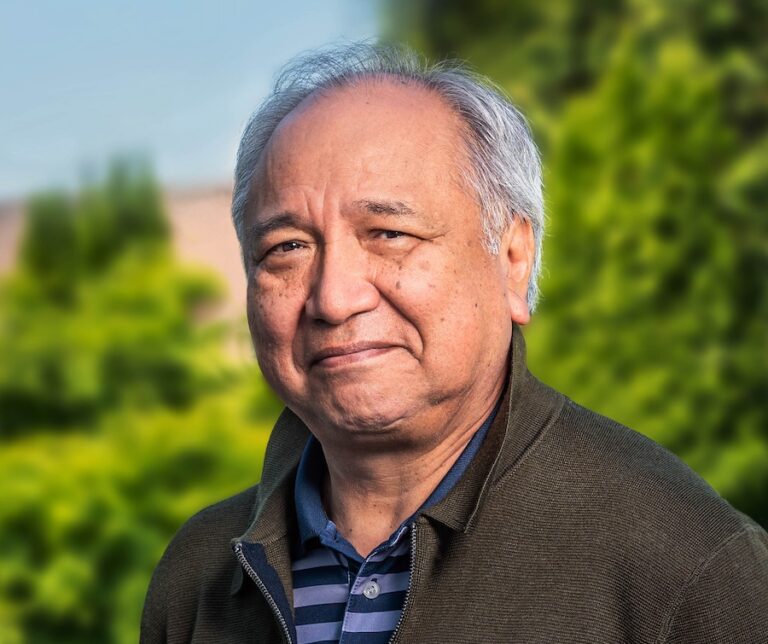
The Honourable Steven Point
Past Member
The Honourable Steven Point is a double alumnus of UBC and retained close ties with the University after receiving his Bachelor of Laws in 1985. Mr. Point served as director of the First Nations Legal Studies program at the Peter A. Allard School of Law from 1991 to 1994. He was awarded an honorary Doctor of Laws degree in 2013 for his exceptional commitment in the field of law, legal and Aboriginal education, and his leadership in the Indigenous community. In addition to his role as the 28th Lieutenant Governor of British Columbia, Point’s career included practicing as a lawyer, working at the Union of British Columbia Indian Chiefs and in the Department of Employment & Immigration, serving as a provincial court judge and the Chief Commissioner of the British Columbia Treaty Commission. Mr. Point is a member of the Skowkale First Nation and has advocated for Indigenous people throughout his career, pressing for greater recognition of their contributions and their fuller involvement in all aspects of life in British Columbia. Mr. Point is a recipient of the Queen Elizabeth II Golden and Diamond Jubilee Medals, the Order of B.C, the Joseph H. Cohen Award from the Justice Institute of British Columbia Foundation, a National Aboriginal Achievement Award, the Order of Chilliwack, and honourary Doctorate of Laws degrees from the University of the Fraser Valley and Capilano University.
-
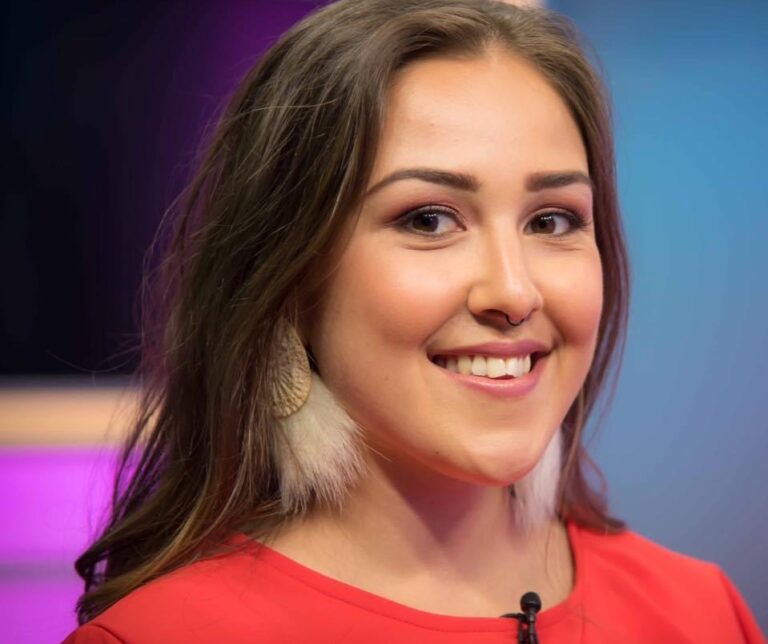
Andrea Brazeau
Past member
Andrea Brazeau is an Inuk who was born and raised in the small Inuit community of Kangiqsualujjuaq, Nunavik. Andrea grew up in Kangiqsualujjuaq until she moved to Montreal to attend post-secondary education. After 7 years of post-secondary, she obtained a degree in Kindergarten and Elementary education at McGill University. Since graduating, Andrea has returned home to teach at the school she attended. She is the first university graduate from her community. Andrea is passionate about her culture, going out on the land and teaching the children in the community.